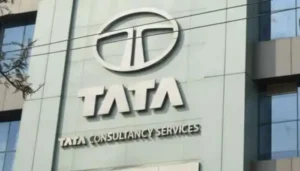Tata Consultancy Services (TCS), India’s largest IT services firm, has announced the layoff of over 12,000 employees, marking the biggest workforce reduction in its history.
While the company attributes the move to “skill mismatches,” industry analysts believe it signals a deeper, AI-driven transformation across India’s $283 billion outsourcing sector.
The layoffs represent roughly 2% of TCS’s 613,000-strong workforce, with the majority of affected roles concentrated in middle and senior management.
Experts warn that this may be the beginning of a broader trend, with up to 500,000 IT jobs at risk over the next two to three years due to automation and evolving client demands.
AI and Automation Reshaping White-Collar Work Resulting in Layoff
The Indian IT industry, which employed 5.67 million people as of March 2025, has long been a cornerstone of the country’s middle-class growth.
However, the rise of artificial intelligence and automation is rapidly changing the nature of work.
Tasks such as coding, manual testing, infrastructure management, and customer support are increasingly being handled by AI systems.
Ray Wang, founder of Constellation Research, described the shift as a “massive transition that will transform white-collar work as we know it.”
Vulnerable roles include people managers with limited technical skills, QA testers, and basic tech support staff, many of whom now face redundancy.
Mid-Career Professionals Most at Risk of Layoff
According to UnearthInsight founder Gaurav Vasu, 400,000 to 500,000 IT professionals could face layoffs in the coming years, with 70% of those affected having 4 to 12 years of experience.
This demographic, often referred to as the “big fat middle layer,” includes employees who are neither entry-level nor senior leadership, and whose skills may not align with emerging AI-driven workflows.
Staffing firm Xpheno estimates that TCS and its peers—Infosys, HCLTech, Tech Mahindra, Wipro, LTIMindtree, and Cognizant—collectively employ over 430,000 professionals with 13 to 25 years of experience, many of whom may also be impacted if reskilling efforts fall short.
Economic Ripple Effects
The layoffs will have broader economic consequences, given the IT sector’s multiplier effect on consumption.
Experts warn that job insecurity may dampen consumer demand for housing, automobiles, tourism, and luxury goods, and delay long-term investments such as real estate purchases.
The sector contributes over 7% to India’s GDP, and any disruption in employment could have a cascading impact on related industries and urban economies.
TCS’s Strategic Response
In its July 2025 statement, TCS emphasized its commitment to becoming “future-ready” by investing in emerging technologies, expanding into new markets, and deploying AI at scale—both for clients and internal operations.
However, the company did not clarify whether it directly influenced the layoffs through AI adoption or why it chose not to offer redeployment options to affected employees.
For many impacted workers, the news has been devastating.
A 45-year-old employee from Kolkata described the situation as “very difficult,” especially for those in mid-career stages who may struggle to find new roles in a rapidly evolving job market.
Note: We are also on WhatsApp, LinkedIn, and YouTube, to get the latest news updates. Subscribe to our Channels. WhatsApp– Click Here, YouTube – Click Here, and LinkedIn– Click Here.



